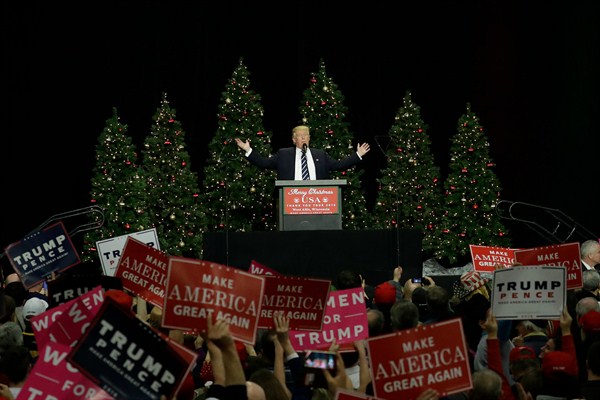Is Donald Trump crazy, or is he crazy like a fox? Is he singularly ill-suited for the presidency, or a deftly intuitive negotiator adept at throwing his adversaries off-balance? Is he genuinely clueless about the intricacies of U.S. foreign policy and the international order in which it operates, with no curiosity to learn about them? Or is he cleverly manipulating the widespread perception of his ignorance to his advantage?
As with most things having to do with the U.S. president-elect’s foreign policy, these questions remain unanswerable. But in trying to answer them, we are left not only with uncertainty, but with the language and tone we use to do so. And as I argued on a recent appearance on France 24’s The World This Week program, the condescending and mocking tone many foreign affairs commentators have used to describe Trump’s foreign policy pronouncements to date is counterproductive to any effort to rein them in.
The most obvious case in point was Trump’s decision to take a congratulatory call from Taiwanese President Tsai Ing-wen earlier this month. Initial reaction among Asia hands and foreign policy observers was of shocked dismay. Many suggested Trump might not even have recognized the significance of breaching decades of American diplomatic protocol regarding the so-called One China policy. While Trump’s initial explanations for and defense of the call appeared to lend weight to the suspicion, subsequent reporting demonstrated that the call had been prepared and arranged by his advisers for weeks. Trump later claimed in an interview that he understands the One China policy, but that it is not sacrosanct.

